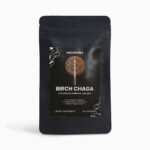
“Dealing with Allergies: How to Choose the Right Food Supplements”
Allergies are a common health problem affecting millions of people worldwide. It can be a nuisance and a hindrance to our daily activities. Choosing the right food supplements is crucial to manage allergies and promote better health. With so many options available, it can be overwhelming to find the right one that works for you. This article aims to provide you with the necessary information to make an informed decision on choosing the right food supplements for your allergies. We will explore the common types of allergies, the benefits and risks of food supplements, and tips on how to choose the right one. By the end of this article, you will have a better understanding of how to effectively manage your allergies and live a healthier life.
1. Understanding food allergies and their effects on our body
Food allergies can make simple meal decisions extremely difficult. It’s essential first to understand what a food allergy is and how it affects our body. Put simply, a food allergy is a condition where the immune system responds abnormally to a certain protein found in food. After consuming the food, the body’s immune system releases an antibody known as immunoglobulin E (IgE) to fight off the protein, resulting in an allergic reaction.
The effects of food allergies can vary in severity, depending on how much of the protein is consumed, and how sensitive the individual is to the food. Mild symptoms of food allergies include skin rashes, itchy or swollen lips, and indigestion. In contrast, severe symptoms can include anaphylaxis, a life-threatening condition that impairs breathing, causes a drop in blood pressure, and can lead to unconsciousness.
It’s important for everyone to understand the effects of food allergies, not just for those who suffer from them. If you or someone you know is in the company of someone experiencing an allergic reaction, it’s essential to take immediate action to ensure the person’s safety. Know the signs of an allergic reaction and always carry an emergency epinephrine auto-injector, which can alleviate severe symptoms of anaphylaxis. By understanding food allergies, we can better protect ourselves and those around us.
2. The role of food supplements in reducing allergy symptoms
Food supplements have been found to help reduce the symptoms of allergies, providing relief to those affected. While supplements cannot cure allergies, they can be an effective means of reducing symptoms such as sneezing, itching, and hives. Several types of supplements have been shown to be particularly effective in reducing the symptoms of allergies.
One effective type of supplement for reducing allergy symptoms is probiotics. Probiotics contain living organisms that are known to support healthy digestion and overall immune system function. They can help to reduce inflammation, which is often associated with allergies. In addition, probiotics can help to support healthy gut bacteria and reduce the risk of developing allergies and other immune-related disorders.
Another type of supplement that can help reduce allergy symptoms is quercetin. This antioxidant has been found to have potent anti-inflammatory and antihistamine properties. It works by stabilizing mast cells which release histamine that is responsible for allergy symptoms. Foods high in Quercitin include apples, berries, onions, and capers. Taking supplements provides an easy way to consume therapeutic doses without consuming large amounts of food.
In conclusion, food supplements can play an important role in reducing allergy symptoms. In particular, probiotics and quercetin have been found to be effective at reducing inflammation and stabilizing histamine release, respectively. Incorporating these supplements into your daily routine can help reduce allergy symptoms and support overall health. However, it’s worth consulting your doctor before starting any supplement regimen.
3. Distinguishing between natural and synthetic food supplements for allergies
Natural Versus Synthetic Food Supplements for Allergies
If you have allergies, then you know how frustrating and painful they can be. Many people turn to food supplements to help alleviate their symptoms, but it’s important to distinguish between natural and synthetic options. While both can be effective, they have their own unique benefits and drawbacks.
- Natural Supplements – These are made from natural sources like plants, herbs, and other natural compounds. They are often considered to be safer and more effective than synthetic supplements. Some popular natural supplements for allergies include turmeric, Quercetin, and stinging nettle.
- Synthetic Supplements – These are man-made supplements that mimic the effects of natural supplements. They are often cheaper and more convenient to take, but they may not be as effective as their natural counterparts. Some popular synthetic supplements for allergies include antihistamines, decongestants, and corticosteroids.
So, which one should you choose? It ultimately depends on your personal preferences and needs. If you prefer a more natural approach and are willing to invest more time and money, then natural supplements may be the way to go. However, if you need quick relief and don’t mind the potential side effects, then synthetic supplements may be a better option.

4. Key nutrients and vitamins to look for in allergy-specific supplements
When it comes to dealing with allergies, supplements can play an important role. Allergy-specific supplements contain key nutrients and vitamins that support the immune system and alleviate allergy symptoms. However, not all supplements are created equal. To ensure you’re getting the most out of your supplements, here are some essential nutrients and vitamins to look for:
- Quercetin: A natural compound found in many fruits and vegetables, quercetin has anti-inflammatory properties that can help reduce allergic reactions. It also acts as a natural antihistamine, helping to alleviate symptoms such as itching, sneezing, and congestion.
- Vitamin C: Known for its immune-boosting properties, vitamin C is also a powerful antioxidant that can help neutralize harmful free radicals in the body. This can be especially helpful for people with allergies, as free radicals can exacerbate allergy symptoms.
- Omega-3 fatty acids: Found in fatty fish such as salmon and mackerel, omega-3 fatty acids have been shown to have anti-inflammatory effects that can help reduce allergic reactions. They may also help improve lung function and reduce the risk of asthma in people with allergies.
Other key ingredients to look for in allergy-specific supplements include probiotics, which can help support digestive health and boost the immune system, and ginger, which has anti-inflammatory properties that can help relieve allergy symptoms such as headaches and nasal congestion. Keep in mind that supplements should always be taken in conjunction with a healthy diet and lifestyle, and under the guidance of a healthcare professional.
By choosing allergy-specific supplements that contain these key nutrients and vitamins, you can help support your immune system and alleviate allergy symptoms. Not only can this improve your quality of life, but it may also reduce the need for prescription medications and other interventions.

5. Incorporating food supplements into a comprehensive allergy treatment plan
Food supplements can play an essential role in a comprehensive allergy treatment plan. While it is important to consult with a healthcare professional before starting any supplement regimen, incorporating certain supplements into your treatment plan can help support your immune system and alleviate allergy symptoms.
One supplement that has been shown to be particularly effective in reducing allergy symptoms is quercetin. Quercetin is a plant-based flavonoid that has natural antihistamine and anti-inflammatory properties. It is found in many foods, including apples, onions, and citrus, but can also be taken in supplement form. Taking a quercetin supplement can help reduce the severity of allergy symptoms such as itching, sneezing, and congestion.
In addition to quercetin, omega-3 fatty acids can also play a useful role in allergy treatment. Omega-3s are found in fatty fish such as salmon and tuna, as well as in supplements like fish oil. Not only do omega-3s have anti-inflammatory properties that help reduce allergy symptoms, but they also support overall immune system function. Incorporating omega-3s into your diet or supplement regimen can help reduce inflammation and support immune system health, which may lead to a reduction in allergy symptoms.
6. Choosing reputable brands and consulting with healthcare professionals before using supplements
It is essential to choose reputable brands and consult with healthcare professionals before using supplements. With so many options available in the market, it can be challenging to determine which brand is trustworthy and safe. One way to ensure you are choosing a reputable brand is to do your research and read reviews before making a purchase. Look for certification seals such as USP, NSF, or GMP, ensuring the supplement’s quality, purity, and potency.
Consulting with a healthcare professional is another important step to take before starting any new supplement regimen. Your doctor can help you determine if you need a supplement or if you can get enough nutrients from your diet. They can also advise you on the proper dosage and give you a list of possible drug interactions and side effects to watch out for.
It is essential to remember that supplements are not a magic solution and cannot replace a balanced diet and healthy lifestyle. They can be useful as a complementary addition to your diet, but they are not a substitute for proper medical care. Always choose reputable brands and consult with healthcare professionals before using supplements to ensure you are taking them safely and effectively.
7. Making informed decisions for long-term allergy relief through food supplements
Food supplements are a great addition to your long-term allergy relief plan. With so many options out there, it can be difficult to separate the good from the bad. When looking for a supplement, it’s important to do your research and find one that contains the right ingredients for your specific allergy needs. For example, if you have seasonal allergies, a supplement containing quercetin and nettles may be beneficial.
It’s important to remember that food supplements are not a cure for allergies, but rather a way to support your body in managing symptoms. They work best when used in combination with other allergy relief methods, such as avoiding triggers and taking any prescribed medications. Before adding a supplement to your routine, it’s always a good idea to consult with your healthcare provider.
When selecting a supplement, choose a reputable brand that uses high-quality ingredients. Look for supplements that are certified by third-party organizations, such as NSF International or USP. Additionally, pay attention to the dosage recommendations and follow them carefully. Too much of a good thing can be harmful, so it’s important to stick to the recommended amount. With the right supplement on your side, long-term allergy relief can be within reach.
- Do research and find a supplement with the right ingredients for your specific allergy needs.
- Remember that supplements are supportive, not a cure for allergies.
- Choose a reputable brand that uses high-quality ingredients and follow dosage recommendations carefully.
Remember: Food supplements are a great way to support your body in managing allergy symptoms. With the right research and care, they can be an effective part of your long-term allergy relief plan.
Remember, there are options out there that can help you manage your allergies. Don’t be afraid to seek assistance and educate yourself about potential solutions. With the right food supplements, you’ll be on your way to an allergy-symptom free lifestyle.

























